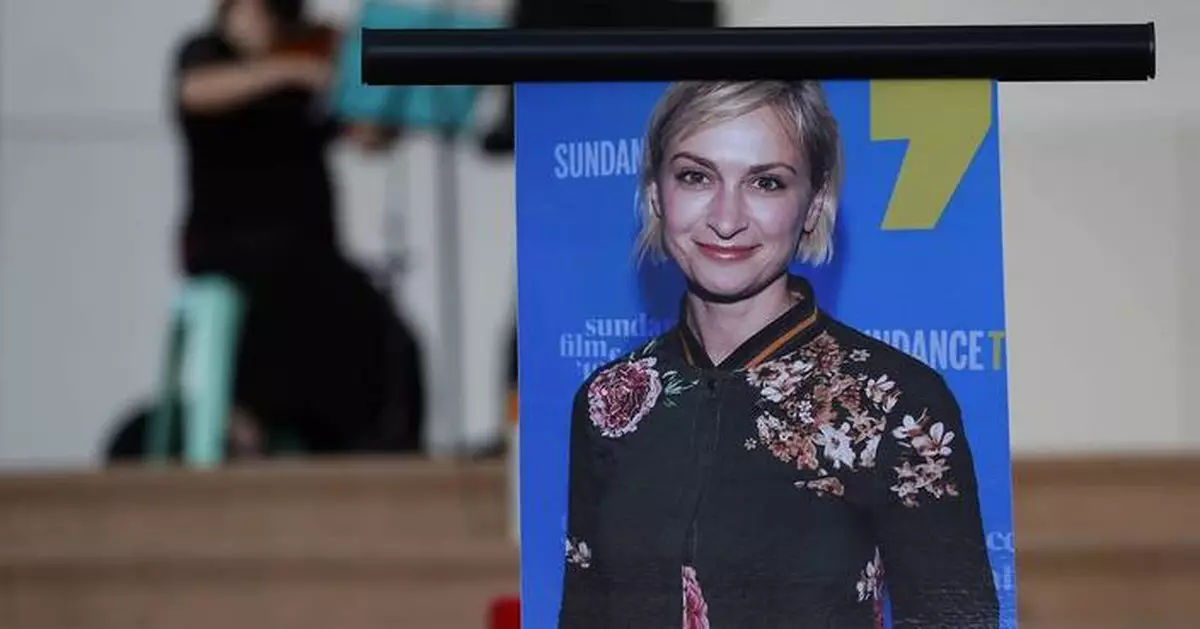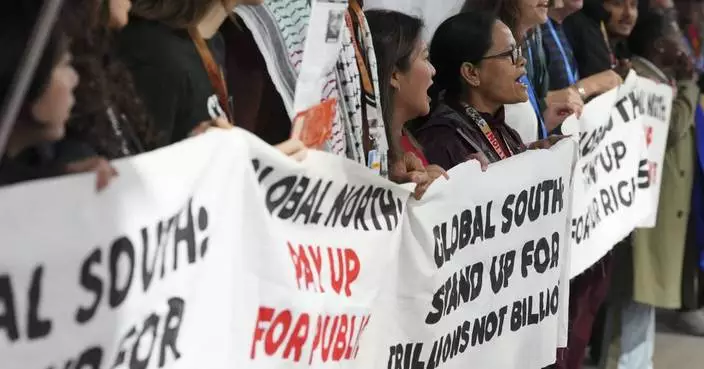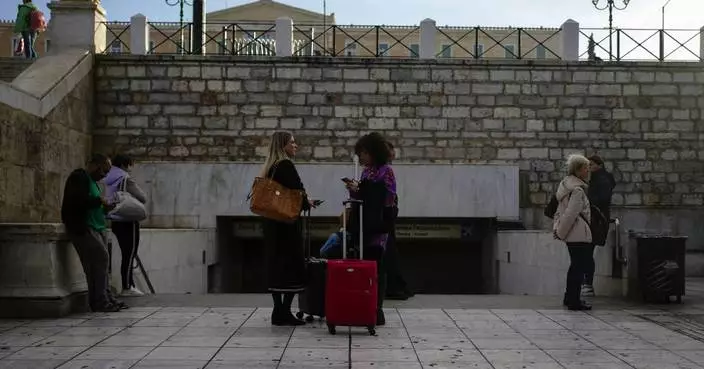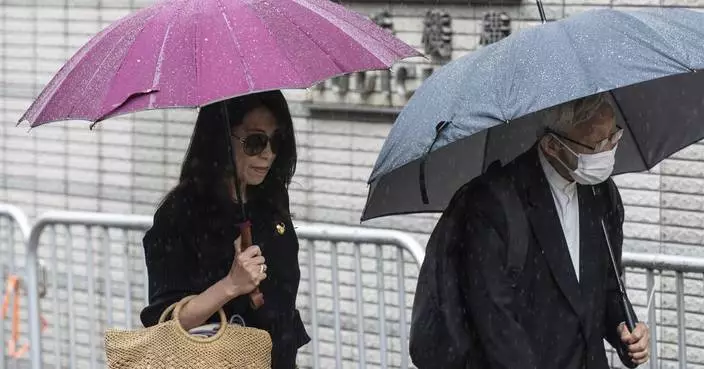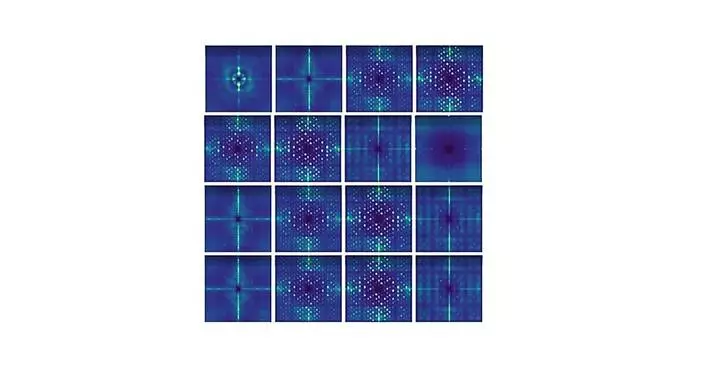TORUN, Poland (AP) — The mother of late cinematographer Halyna Hutchins is boycotting the world premiere of “Rust” at a film festival in Poland on Wednesday, saying she views it as an attempt by Alec Baldwin to “unjustly profit” from her daughter’s death.
The Western is premiering at the International Film Festival of the Art of Cinematography Camerimage in the city of Torun three years after Hutchins was shot accidentally on set.
Baldwin, the lead actor and co-producer for “Rust,” was pointing a gun at Hutchins during a rehearsal on the set outside Santa Fe, New Mexico, in October 2021 when the revolver went off, killing Hutchins and wounding director Joel Souza. Baldwin has said he pulled back the hammer — but not the trigger — and the revolver fired.
Souza was expected to introduce the film at the festival, a popular industry event dedicated to the art of cinematography, and the premiere was being dedicated to Hutchins.
“It was always my hope to meet my daughter in Poland to watch her work come alive on screen," said Hutchins’ mother Olga Solovey in a statement issued by her lawyer and carried by Britain’s national news agency, PA.
“Unfortunately, that was ripped away from me when Alec Baldwin discharged his gun and killed my daughter," she said. “Alec Baldwin continues to increase my pain with his refusal to apologize to me and his refusal to take responsibility for her death. Instead, he seeks to unjustly profit from his killing of my daughter.”
“That is the reason why I refuse to attend the festival for the promotion of Rust, especially now when there is still no justice for my daughter," she added.
Hutchins, 42, was a Ukrainian cinematographer on the rise and a mother of a young son when she was killed. She grew up on a remote Soviet military base and worked on documentary films in Eastern Europe before studying film in Los Angeles and embarking on a promising movie-making career.
A New Mexico judge dismissed an involuntary manslaughter charge against Baldwin in the fatal shooting. But while the threat of criminal liability was lifted, he is facing other civil lawsuits, including one by Solovey.
The film armorer, Hannah Gutierrez-Reed, received the maximum sentence of 18 months in jail for involuntary manslaughter. A New Mexico judge found earlier this year that her recklessness amounted to a serious violent offense. Prosecutors blamed Gutierrez-Reed for unwittingly bringing live ammunition onto the set of “Rust,” where it was expressly prohibited, and for failing to follow basic gun-safety protocols.
This year's Cameraimage festival, where Cate Blanchett is serving as jury president, has already been beset by controversy.
“Blitz” director Steve McQueen dropped out of the festival to protest an editorial about female cinematographers written by festival founder Marek Żydowicz that McQueen viewed as sexist. Director Coralie Fargeat also pulled her film “The Substance” from the festival due to the comments. Żydowicz has since apologized.
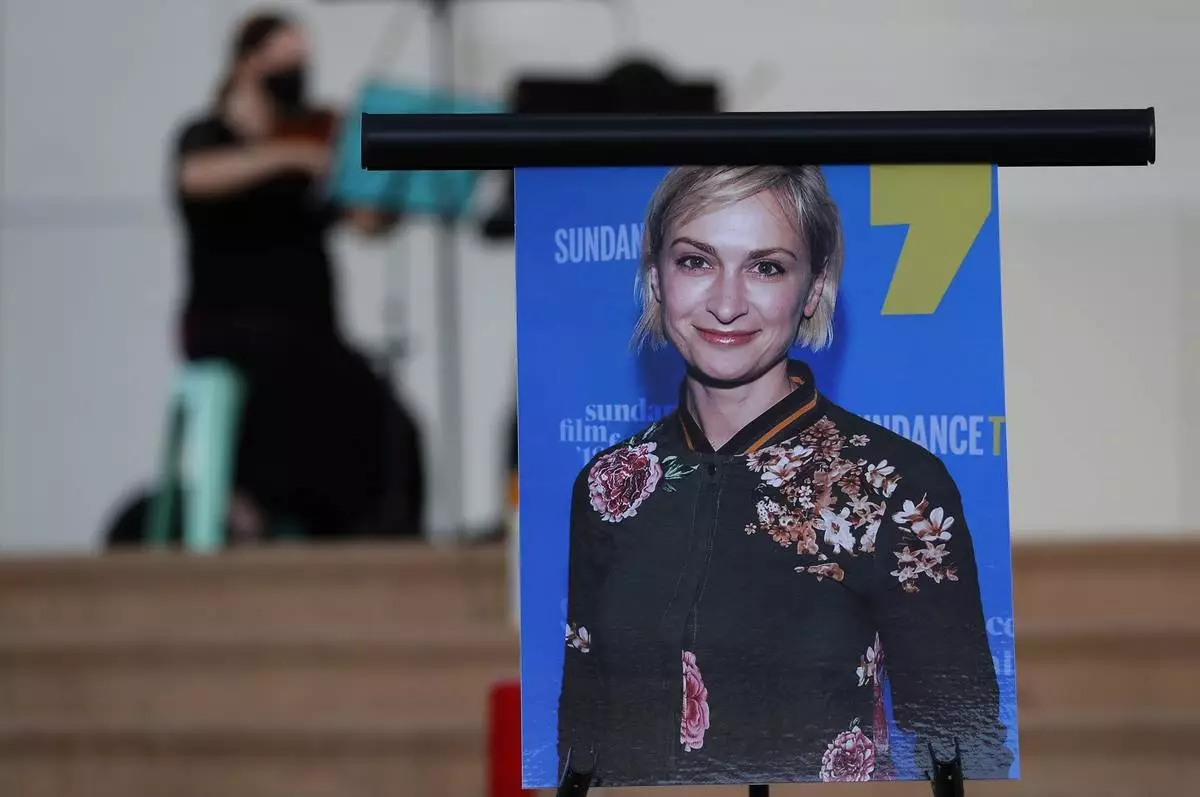
FILE - A musician plays a violin behind a photograph of cinematographer Halyna Hutchins during a vigil in her honor in Albuquerque, N.M.,Oct. 23, 2021. . (AP Photo/Andres Leighton, File)
LONDON (AP) — Australian writer Richard Flanagan completed an unprecedented literary double on Tuesday, winning Britain’s leading nonfiction book prize a decade after being awarded the Booker Prize for fiction.
Flanagan was awarded the 50,000 pound ($63,000) Baillie Gifford Prize for his genre-bending memoir “Question 7,” which combines autobiography, family history and the story of the development of the atomic bomb.
Flanagan won the Booker Prize in 2014 for “The Narrow Road to the Deep North,” a novel that drew on his father’s experiences as a World War II prisoner of the Japanese military.
Baillie Gifford Prize director Toby Mundy said that for the same writer to win the leading U.K.-based fiction and nonfiction awards was “completely unprecedented.”
Journalist Isabel Hilton, who chaired the judging panel, said Flanagan had written a “meditative symphony of a book” that weaves together “enormous traumatic events of the 20th century … with an extraordinary personal narrative.”
Hilton said Flanagan’s fiction background was evident in the book’s inventiveness and “narrative beat.”
“I think the book benefitted from that novelist’s eye,” she said.
Flanagan was not on hand to receive the trophy in person at a ceremony in London. Organizers said he was trekking in the Tasmanian rainforest.
In a recorded message, Flanagan called the threat from climate change existential, and said he wouldn't accept the prize money unless the finance firm that sponsors the prize draws up a plan to end its investments in fossil fuel companies.
Edinburgh-based Baillie Gifford has faced protests from environmental groups over its investments in fossil fuel businesses and firms linked to Israel’s defense sector. Amid the controversy, the company stopped sponsoring several British book festivals, including one of the lagrest, the Edinburgh International Book Festival.
That has prompted a backlash from others in the culture world, who say it starves the arts of much-needed funding.
Baillie Gifford partner Peter Singlehurst criticized the campaigners’ demands, saying “purity is illusory.”
“What is being demanded is something we cannot do,” he told attendees at the ceremony. “The literary community must either accept us as they find us, or not at all.”
Mundy said the nonfiction prize hoped to renew Baillie Gifford’s sponsorship, which ends in 2026.
“They’ve been exemplary sponsors and I think exemplary supporters of the literary culture of this country,” he said.
Flanagan’s book beat five other finalists, including American writer Annie Jacobsen’s sobering “Nuclear War: A Scenario” and Pulitzer Prize winner Viet Thanh Nguyen’s autobiographical “A Man of Two Faces: A Memoir, A History, A Memorial.”
Founded in 1999, the Baillie Gifford Prize recognizes English-language books in current affairs, history, politics, science, sport, travel, biography, autobiography and the arts. It has been credited with bringing an eclectic slate of fact-based books to a wider audience.
Last year’s winner was John Vaillant’s real-life climate-change thriller “Fire Weather: A True Story from a Hotter World.”
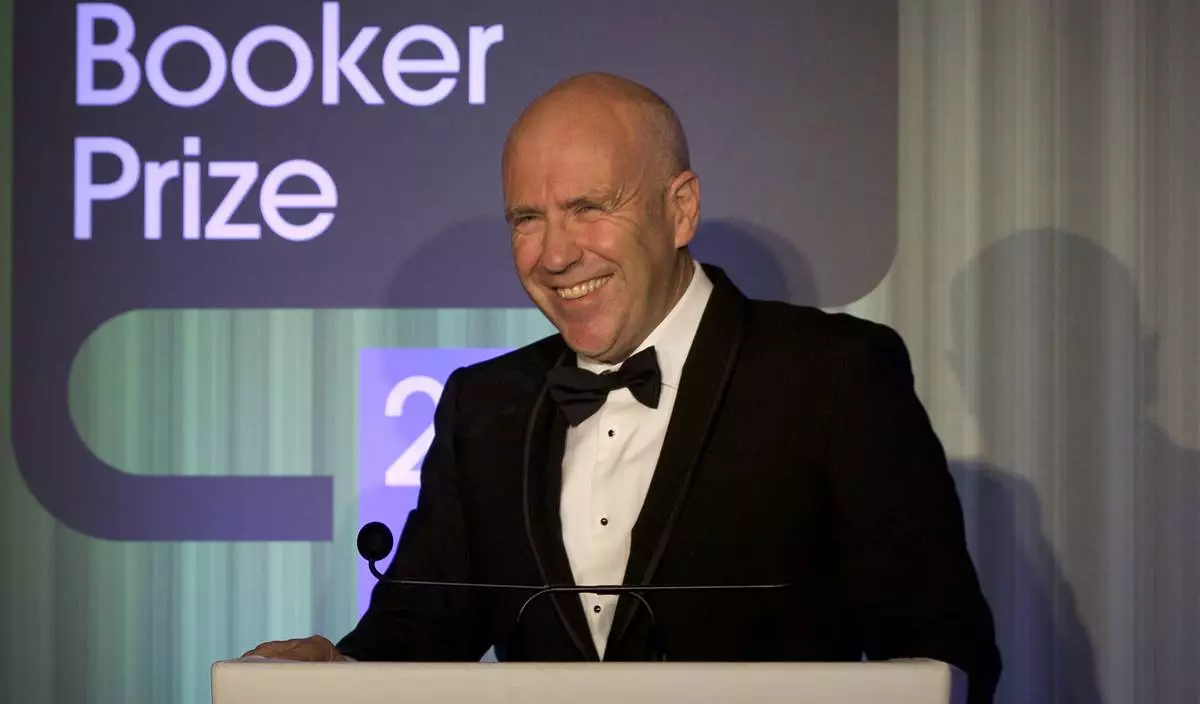
FILE - Winner of the Man Booker for fiction 2014 Australian author Richard Flanagan, author of 'The Narrow Road to the Deep North', speaks after winning the prize at the Guildhall in London, Oct. 14, 2014. (AP Photo/Alastair Grant, Pool, File)



